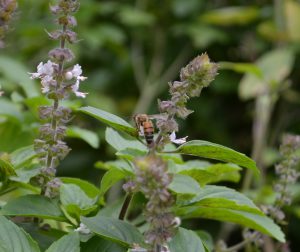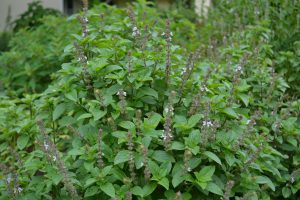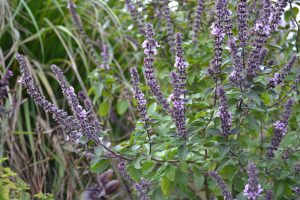
Basil is a favorite plant in the summer herb garden and an absolute must for those who enjoy fresh leaves for a sandwich or delicious homemade pesto. While we grow basils as a food enhancer, an added benefit is that those basil selections that form flowers are very attractive to pollinators. If you would rather not let your favorite basil form flowers, consider adding a specific species that is grown more for its attractiveness to pollinators than its culinary uses.
African blue basil is a hybrid of two basils that has inherited a camphor flavor from one of its parents. Although edible, the flavor may not be appealing to those who are familiar with more traditional basil flavors. Plants produce abundant flowers that are pink with a dark purple base, although flowers are sterile so no seeds will be formed. If you want more African blue basil, you must purchase transplants or start your own from cuttings off the main plants.


Like other basils, African blue basil does like soils amended with composts that are well-drained. Plants thrive in full sun and will form rounded mounds that will be much larger than more culinary basils, up to five feet in some gardens. Plants do form woody stems and although frost tender, some plants may return in the spring in more protected areas.
Although some edible gardeners may not want to allow space for a basil that they will not use in the kitchen, the amount of pollinator activity on this selection makes it a benefit to any edible garden for all the frost-free months.
 1
1
